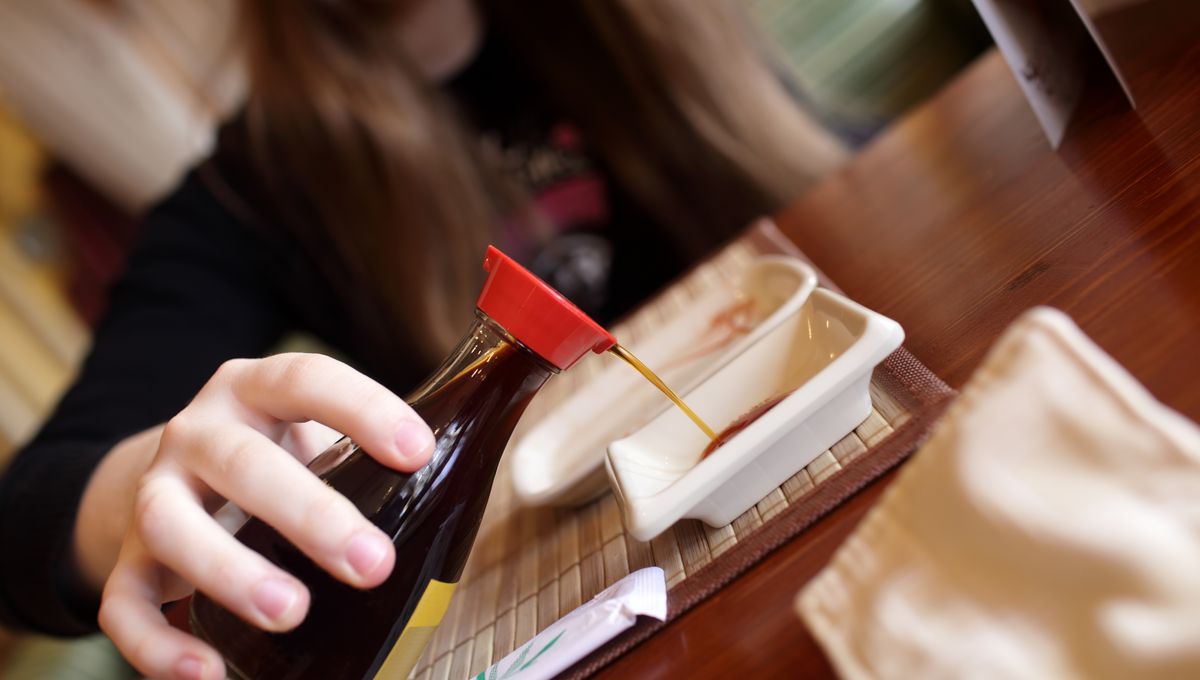
As a super-salty fermented food, soy sauce can be safely stored at room temperature for several months, perhaps even more. However, there are a few scenarios where it could be a good idea to put this keystone condiment in the refrigerator.
Soy sauce is made by fermenting steamed soybeans and roasted wheat grain with specific molds, like Aspergillus oryzae or A. sojae, then brewing the mashed-up mixture with salt brine. The product is then pressed to produce a liquid condiment, perfect for adding a rich, umami flavor to food.
Salt is an excellent natural preservative as it inhibits microbial growth by drawing water out of cells by osmosis. Since soy sauce has an extremely high salt content – just one single tablespoon of it contains around half of your recommended daily intake – it’s relatively well-protected from microorganisms that might make you sick.
On top of this, soy sauce has undergone fermentation, another food preservation technique that’s been practiced for centuries. Lastly, it is mildly acidic, yet another factor that makes it an undesirable home for pathogens.
Some bacteria and fungi may be able to weather the storm and grow at room temperature within the liquid, but most suggest that a bottle of soy sauce can be left in the cupboard for several months thanks to these preservative properties. Left unopened, a bottle of soy sauce can last for years and years without any trouble
However, once opened, some advise you to keep soy sauce in the refrigerator to maintain freshness.
Kikkomon, a Japanese food manufacturer, explains on their website: “Soy Sauce will keep for several months. To preserve the flavor, we suggest storing the bottle in the fridge after opening.” They explain that soy sauce, once the bottle is cracked open, can be affected by oxidation, which may impede its subtle flavor and natural appearance.
If you cook a lot of Asian food, then you probably go through a bottle of soy sauce so quickly – let’s say, within a month – that refrigeration doesn’t need to cross your mind. Likewise, a restaurant with soy sauce on the table doesn’t necessarily need to put the bottles in the fridge each night since they will likely be empty within a week or so.
Atsuko Ikeda, chef and author of the cookbook Otsumami: Japanese Small Bites and Appetizers, told EpiCurious she doesn’t refrigerate her soy sauce because she uses a bottle so rapidly, although she does believe it best to try to finish a bottle within a month of opening it. After that, she suggests using soy sauce for different dishes that don’t rely on the refined properties of the condiment.
“It may not be as fresh as it was when it was first opened but it can be used for stewing and sauces such as teriyaki, rather than sashimi or sushi,” Ikeda said.
Of course, it’s worth remembering that soy sauce was invented at least 2,200 years ago during China’s Western Han dynasty, long before the electric refrigerator was invented.
With all this in mind, if you find a bottle of soy sauce in your cupboard with an expiry date of January 2003, it would be highly advisable to pour it down the sink and not sprinkle it on your sashimi.
All “explainer” articles are confirmed by fact checkers to be correct at time of publishing. Text, images, and links may be edited, removed, or added to at a later date to keep information current.
Source Link: Do You Really Need To Put Soy Sauce In The Refrigerator?